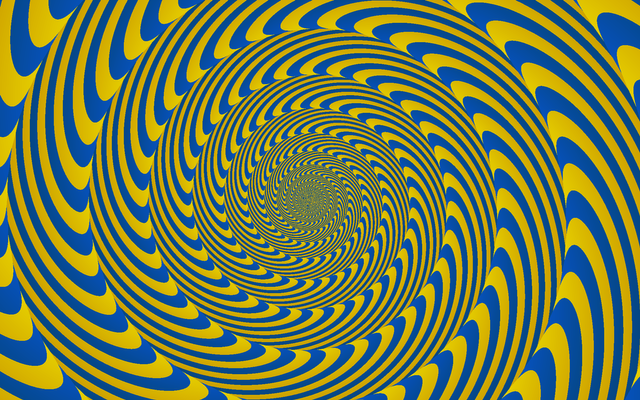Illusive Awareness

Humans do not skeptically question their senses, but rather use their senses as one way to attain knowledge. The way we use our senses is by simply seeing, hearing, touching, tasting, and smelling the source of an object whose properties directly relate to any of our senses. An apple can be seen, tasted, touch and even heard if given proper conditions. Alfred J. Ayer, in The Foundations of Empirical Knowledge, gives us a different perspective on the understanding of how we perceive an apple or any other material substances using the concept of sense-datum. Sense-datum has a presenting function in which a person is given awareness of the material thing. Contrary to the common relation of perception and awareness, Ayer successfully argues that we cannot be directly aware of material things, but rather, we use the concept of sense-datum to make us conscious of the material entity.
Material things may present different properties to different observers, whether it be visually or appease to our other senses. Additionally, the characteristics of the material thing is to a certain extent determined by the person and the conditions in which the material thing is under, which does not tell us for certain the material thing's true properties. Ayer argues that a coin which looks circular from one point of view may look elliptical from another (pp. 3). In the condition in which the observer has a varied angle of a coin, he or she may view the elliptical perspective of the coin, thus resulting in the unawareness of the actual circularity of the object. The observer does not learn the true properties of the material thing, but rather perceives the coin in sense-datum. The perception of an object, may it be either delusive or veridical, does not give us knowledge on the object, but rather gives us knowledge of an experience of sense-datum. As Ayers points out the man who sees a mirage in the desert, he adverts to his notion that the man is perceiving a delusive oasis that does not exist, yet the man is experiencing a conscious thought of the oasis (pp. 4). The concept of sense-datum is simply stating that anything one perceives is not a perception of a thing, but an experience that is leading to the awareness of the thing, because the thing we perceive may actually be something else. We may not state that something has certain properties without sense-datum.
Our perception, whether veridical or delusive, are to some extent dependent on external conditions of our own physiological and psychological states. For example, as I type on this laptop, I may claim that I am seeing this laptop as it really is. For me to state that I am really experiencing this is not a sufficient condition for there to be a laptop. I must be able to see the laptop in the light, I must be in sufficient reach from the laptop, I must have my eyes open to see the laptop, and the state of my mind must be conscious. The point of this exhaustive list is that a material thing is held to be characteristic of their existence by their essential properties, independent of a particular observer (pp. 10). This is held to be not true of objects we immediately experience. Therefore, the experience we immediately perceive is not material at all, but rather conceptual, leading to the awareness of the material thing. The difference in our perception of the thing even when our senses are being fooled by external circumstances, such as a straight stick in water being perceived as a bent stick, is the nature of the perception itself, but also depends on upon our past (pp. 7). Our past is determined by our own experiences of individual situations. Thus, a person who sees a stick in the water which appears to be crooked but knows that it only appears that way due to the refraction of light during its passage from air to water has knowledge of its actual material being as a straight stick; however, if a person who is naturally unaware of the delusiveness of the water may believe the stick is really bent.
Given the previous evidence, Ayers gave adequate substantiation to why we can never truly know the properties of a material thing nor be aware of material things, unless we perceive the material thing under the concept of sense-datum. From the understanding of sense-datum we may learn knowledge of the material thing. The information which is encoded through our senses and decoded in our brain is used to understand the conscious thought of material things. We must take caution in our assumptions of perception for we may be unconscious of the illusions that mock our unawareness.